Live on the homepage now!
Reader Supported News
I have been overwhelmed by the responses – the enthusiasm, and the level of engagement and respect people are bringing to this community dialogue. (Some of you have even kindly said you like my daily drawings.)
I was delighted to learn that one reader named Herbert voted for my favorite leftie vice president, Henry Wallace, in 1948. (By my math, Herbert must be 94 and is still on top of politics!) Another reader, Robin, asked a provocative question about whether oral arguments before the Supreme Court really do change minds. And Kathy reminded us all of the importance of dignity and respect at work. I could go on and on.
With all the news coming out of Washington DC, I’ve been sharing my take on the week ahead every Monday morning. Most Americans are utterly confused or misinformed about what’s at stake in the ongoing negotiations of Biden’s Build Back Better Agenda and what’s happening behind the scenes, so I’ve tried to provide clear analysis by outlining the issues, the players, and their motives (and you can bet that I took a close look at Joe Manchin and Kyrsten Sinema — and their big money backers that seem to be calling the shots.)
Frankly, I’ve been disappointed with the job the mainstream media has done reporting on Biden’s initiatives, so I’ve been working to fill in the gaps and give more context to the news. For example, the media completely misinterpreted the latest jobs report. The coverage was almost universally gloomy, emphasizing “weak” growth and the number of unfilled jobs. But the real story is not bad news, it’s good news! For the first time in decades, American workers are standing up and demanding better wages and improved working conditions. In the wake of so much hardship, illness and death during the past year, I think many peoples’ priorities have shifted. I’ve called it an unofficial general strike.
And then sometimes I share personal memories, like the time I went on a date with Hillary (then) Rodham or when I went to law school with Clarence Thomas, Bill Clinton, and Hillary.
I’d like to add: Sometimes when I write pieces about corruption, our rigged system, corporate hypocrisy, or money in politics, I worry that pointing these out will make people even more cynical than they already are about American politics, resulting in a kind of fatalism or resignation that causes many to give up — and thereby cede the entirety of our democracy to the moneyed interests.
But my hope is that when people hear about this sort of thing, they’re outraged enough to become even more politically active. (One reader, however, did ask me what keeps me optimistic about the future. For me, it’s a no-brainer: my students, who are among the most diverse, intelligent, and committed I’ve ever taught.)
Many have shared that they’re feeling isolated – physically, politically, or otherwise. So my hope is that this newsletter becomes a space where we can re-ignite our optimism, gain solace from the views and experiences of others, ask the hard questions, and get beyond frustration or isolation. We are building a community committed to learning, with an ongoing conversation between you and me and among one another.
For those who’ve yet to sign up, please consider joining us.
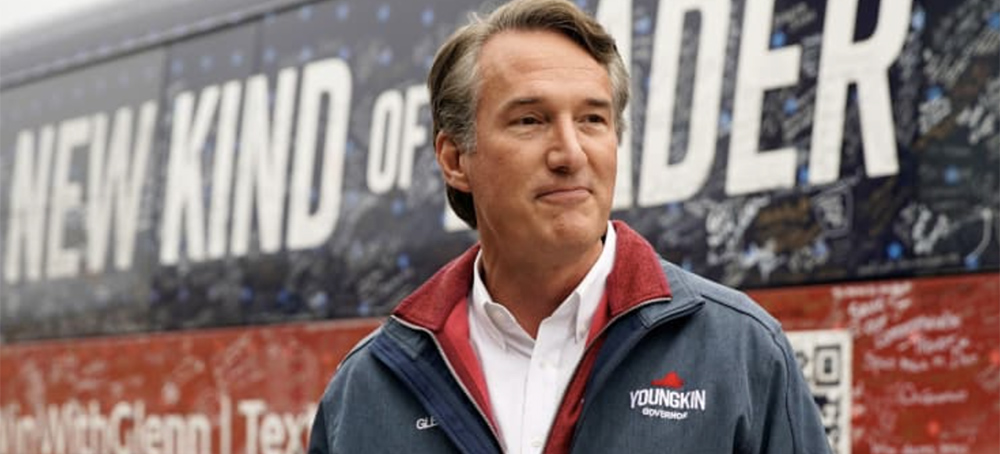 Virginia Republican gubernatorial nominee Glenn Youngkin talks to reporters outside a polling station on the Election Day, at Rocky Run Middle School in Chantilly, Virginia, U.S., November 2, 2021. (photo: Elizabeth Frantz/Reuters)
Virginia Republican gubernatorial nominee Glenn Youngkin talks to reporters outside a polling station on the Election Day, at Rocky Run Middle School in Chantilly, Virginia, U.S., November 2, 2021. (photo: Elizabeth Frantz/Reuters)
ALSO SEE: How Republicans Swept a Bluish State
Youngkin defeated Democrat Terry McAuliffe, a former Virginia governor, in a state that Biden won by 10 points just one year ago, and that current Gov. Ralph Northam, a Democrat, won by 9 points four years ago. Youngkin was able to win back enough moderate Republicans and independents in the suburbs outside Washington, D.C., around Richmond, and in the Virginia Beach and Norfolk area. He did so by keeping his distance from former President Donald Trump without alienating those in the pro-Trump Republican grass roots.
The result has huge national implications. Republicans appear on track to retake control of the House of Representatives a year from now, and possibly the U.S. Senate, just as a Democratic win in Virginia in 2017 foreshadowed a historic victory for the party in the 2018 midterms. That means the clock is now ticking for Democrats on Capitol Hill, to make use of their likely limited time in power.
It will be seen this week how it affects negotiations in Congress over the $1.2 trillion infrastructure bill and the $1.75 trillion budget reconciliation legislation. The House select committee investigating the Jan. 6 insurrection now also knows that it will likely have to wrap up its work by the end of 2022, in anticipation that Republicans will disband the panel once they retake power.
Youngkin’s win was the culmination of a final month in which it was clear that the former private equity CEO was closing strong. The race was close in public polling all summer and into the fall, and kept getting closer. Then in late September, McAuliffe hand-wrapped a political gift to Youngkin when he was explaining why he vetoed a bill as governor that he felt would have turned the public school curriculum process into a chaotic mess.
“I don’t think parents should be telling schools what they should teach,” McAuliffe said during the second and final debate between the two candidates.
A Youngkin aide told Yahoo News that he watched the moment unfold on TV, handed his young child to his wife and immediately began cutting video of the comment to turn it into a 30-second ad. Youngkin seized on the mistake to portray McAuliffe as stiff-arming parents from having input into what their children were learning. And this fed into an already nascent movement of conservative parent groups that had protested remote learning during the 2020 school year, and had this year refocused their activism in fighting mask mandates and lessons about structural racism in schools.
Youngkin campaigned heavily on education issues, but there were other forces at play. Biden’s approval rating has crumbled in recent months amid ongoing economic problems such as inflation, labor shortages, supply chain disruptions and high gas prices.
There is also the ongoing pandemic, which was until recently a winning issue for Democrats due to their support of stricter mitigation measures. A Washington Post-Schar School poll released last week showed only 1 in 10 voters said COVID-19 was their most important issue, but McAuliffe was campaigning heavily on this issue early in the fall.
Over the final month of the campaign, Youngkin gained even more momentum from a controversy in the Loudoun County school system, an affluent area about 40 minutes west of Washington, D.C., full of upper-income and highly educated professionals. Such voters had trended Democratic in recent years, and Biden won the county by 25 points. Northam won Loudoun by 20 points four years ago. But Youngkin narrowed that margin to around 10 points while ringing up massive margins of victory in rural counties.
In Loudoun County, some conservative parents objected to a policy allowing students to use the bathroom of their choice based on gender identity, and requiring teachers to use pronouns of a student’s choice if they identified as transgender or gender-fluid. Those objections dovetailed with the lessons on structural racism, which conservatives labeled as critical race theory.
School board members in Loudoun County felt threatened by increasingly aggressive behavior by protesters at their meetings, and by a flood of profane threats of violence sent to them over email and on social media. Conversely, some parents felt as if the school board was not listening to their input.
And then in early October a parent who had been arrested in July at a Loudoun school board meeting went on Fox News to say that his daughter had been sexually assaulted last spring in a public school girls’ bathroom by a boy wearing a skirt, who was then placed in a different school and had then assaulted a second girl.
Conservative news outlets ran with the idea that a sexual predator had abused an open bathroom policy — which was not in place yet — and said it was an example of misguided liberal policies implemented by imperious bureaucrats, before it emerged that the story was more complex than it seemed.
Nonetheless, Youngkin accused the Loudoun school board of a cover-up and called for an investigation, and had no reservations in stating that the incident was going to help him do better politically in Northern Virginia.
“This is actually turning Loudoun County our direction, but not just Loudoun County: all of Northern Virginia. You watch: We’re going to do better in Northern Virginia than any Republican’s done in a long time, and we might just win Loudoun County,” Youngkin said on Fox News.
Youngkin didn’t win Loudoun, but he cut deeply into Democratic margins in key Northern Virginia counties.
The final piece of Youngkin’s victory was his ability to retain the support of Trump voters while winning back Republicans in Virginia who were repulsed by Trump.
Youngkin won some of the most rural parts of the state by much larger margins than the Republican nominee in 2017, winning between 70 and even 90 percent of the vote in some places, much like Trump did in 2020.
McAuliffe tried to tie Youngkin to Trump every chance he got, but Youngkin came off as more of a country club conservative in the mold of Sen. Mitt Romney, R-Utah, all the way down to Youngkin’s trademark fleece vest.
At the same time, Youngkin made several overtures to those who still believe the former president’s lies about the 2020 election, and stoked grassroots anger and fear by emphasizing the threats to their children in the school system. And in the end, Republicans of all stripes were united by a desire to overlook their differences — for now — in pursuit of a victory.
Youngkin’s victory in blue Virginia will likely offer a playbook for Republicans in battleground districts across the country next year. And McAuliffe’s defeat is a signal to Democrats that, with Trump off the ballot, they’ll need to find new ways to compete in an increasingly difficult political environment.
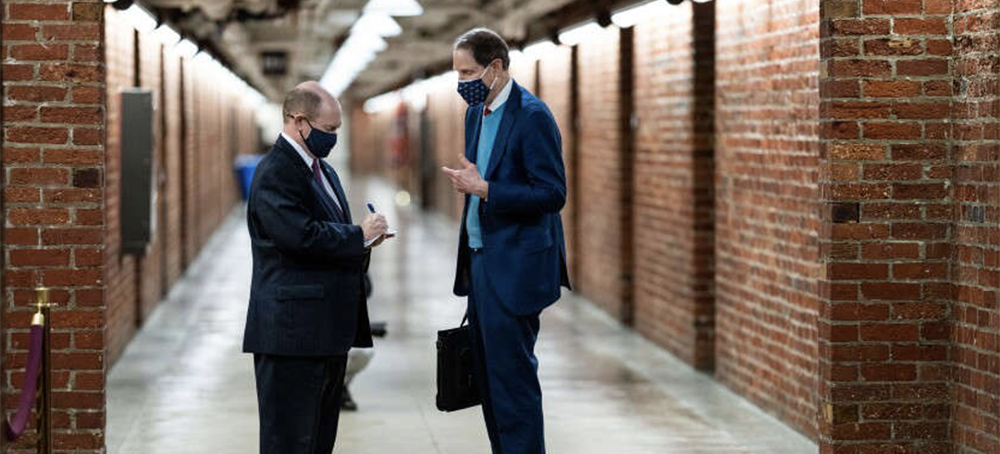 Democratic sens. Ron Wyden of Oregon and Chris Coons of Delaware in March 2021. (photo: Kent Nishimura/LA Times)
Democratic sens. Ron Wyden of Oregon and Chris Coons of Delaware in March 2021. (photo: Kent Nishimura/LA Times)
The Medicare drug-price negotiation policy, left out of an earlier draft of the $1.85-trillion bill because of disagreements, marks the culmination of 15 years of Democratic campaign promises to allow the federal government to use its bargaining power to try to bring down the price of drugs.
"This deal will directly reduce out-of-pocket drug spending for millions of patients every time they visit the pharmacy or doctor," said Senate Majority Leader Charles E. Schumer (D-N.Y.) while announcing the agreement.
Like the social spending bill on the whole, the revised Medicare negotiation plan is more limited in scope than what many progressive Democrats had hoped.
Democrats narrowed the set of circumstances under which Medicare could negotiate prices in order to win the support of centrists including Sen. Kyrsten Sinema (D-Ariz.) and Reps. Scott Peters (D-San Diego) and Kurt Schrader (D-Ore). Peters, who has received significant campaign donations from drugmakers, said expansive negotiation would stifle innovation and threaten pharmaceutical industry jobs, including about 27,000 of them in San Diego.
The finalized plan would allow Medicare to negotiate prescription drug prices in certain situations, including for drugs that are no longer under “exclusivity,” or protected from competition while they are still new to the market, according to lawmakers and aides who spoke before final legislative text was released.
Negotiation would begin with a group of 10 drugs in 2025. Most drugs would be exempted from negotiation for nine years. Biologics, or drugs cultivated from living cells, also the fastest growing part of the drug industry, would get 12 years. That period of exclusivity was a top priority of Peters and centrists, who said they wanted to protect drugmakers’ ability to create new drugs. And, “that’s something industry can deal with,” Peters said.
Seniors' out-of-pocket prescription drug costs would be capped at $2,000 a year. Insulin will be subject to negotiation and out-of-pocket costs would be capped at $35 per month as well, a move that is likely to be politically popular because of recent and dramatic increases in the price of the widely used drug.
It will also establish a way for seniors to spread their prescription drug bill throughout the year instead of paying all at once.
The plan also imposes restrictions on how much drugmakers can increase their prices year over year. If a drug's price rises faster than inflation, its manufacturer would have to pay a rebate, a tool that policymakers say will serve as an incentive for the pharmaceutical industry to keep prices low. The rebate requirement would apply in Medicare and in commercial insurance plans, meaning the policy will apply to millions of Americans.
Medicare drug price negotiation has proved to be one of the most politically complex issues in the social spending bill. Its exclusion from the framework President Biden released last week sparked “white hot anger” among rank-and-file members and provided new momentum in the talks, according to Rep. Peter Welch (D-Vt.), a longtime advocate of negotiation.
Other Democrats said it would be embarrassing if the party wasn’t able to make minimal progress on allowing the federal government to use the massive purchasing power of Medicare to negotiate prices with drugmakers.
Out of the gate, it became clear that the drug pricing bill Democrats had originally written, House Resolution 3 with full Medicare negotiation, would face trouble in both the Senate, where Sinema and others opposed it, and the House. In September, Peters, Schrader and Reps. Kathleen Rice (D-N.Y.) and Stephanie Murphy (D-Fla.) — who together represent enough votes to tank the entire bill — voted against the policy in their committees.
“We all took a lot of noise in our communities,” Peters said. “I think there was a lot of pressure, but [we reached] a result that is going get passed — that was always one of the problems with HR 3 — and will provide relief for seniors."
Last week, Sinema and the White House agreed to a slimmed-down version that nearly made it into Biden's framework, according to a person familiar with the negotiations. But Speaker Nancy Pelosi (D-San Francisco) told the White House that wasn't good enough.
Negotiations intensified once the framework was released without prescription drug policy. Pelosi reached out to Sinema on Friday to speak directly about a path forward, according to Sinema's spokesperson.
Several other lawmakers were trading phone calls in recent weeks as well, including Sen. Christopher S. Murphy (D-Conn.), Sinema, Peters and Schrader. Advocacy groups ratcheted up their calls for Congress to act as they viewed this as Democrats' last, best shot at price negotiation for years.
The ban on negotiation has been in place since 2003, when President George W. Bush and congressional Republicans enacted the Medicare prescription drug program. They had to prohibit negotiation to win the votes of Republicans who were worried about the fate of drugmakers.
Reversing the ban quickly became a campaign promise for Democrats. It was the last unfinished piece of business from their “Six for ’06” promises in the 2006 election cycle, a point on which Pelosi has repeatedly reminded her members. Rising prescription drug costs and Democrats’ proposed solution of price negotiation proved to be particularly potent in the 2018 election, in which Democrats regained control of the House.
"We ran on upsetting the status quo and lowering out-of-pocket costs for healthcare and prescription drugs," a group of those Democrats wrote in a letter over the weekend demanding that price negotiation get into the final bill. "If we fail, those on the other side of this issue will need to explain to Americans why they let Big Pharma win, why entrenched special interests take precedence over the American people."
Murphy said Democrats’ goals were to get savings for consumers and taxpayers, and to “begin to test the theory of negotiation.”
“That’s the sweet spot I’m trying to find,” he said last week. "How do we do something substantial when it comes to negotiation that actually gets price reductions, while addressing some of the concerns that Sen. Sinema is bringing to the table."
The policy also marks a significant win for Congress in its years-long battle with the powerful pharmaceutical industry.
"This deal starts to break the iron grip that Big Pharma has on lifesaving and life-extending drugs," Welch said. "Medicare can finally negotiate for a better deal for consumers and taxpayers. We are finally putting a check on future price gouging by Big Pharma by limiting annual price increases beyond the rate of inflation."
Still, Welch and many other Democrats said the plan did not do everything they had hoped. Limiting negotiation to drugs outside the exclusivity period is a significant setback from what the House originally had hoped to do because it would limit the number of drugs that would be eligible.
"Am I OK with it? No," Welch said. "I want to have negotiation in the exclusivity period, but we don't have the votes for that."
Negotiation would happen in Medicare Part B, which includes drugs administered at the doctor’s office, and Part D, which includes drugs provided at the pharmacy counter.
The inclusion of Part D was a point of compromise for moderates, who wanted to limit negotiation to Part B. But Part D negotiation will be politically important because that covers the vast majority of drugs, and more seniors are likely to see a price drop at the pharmacy.
“It's not going to be possible to walk into a senior citizen center in America and say the only thing we’re going to negotiate over are drugs that are administered in the doctor's office,” said Sen. Ron Wyden (D-Ore.), who chairs the Senate Finance Committee. Seniors have “seen all these reports about how much more expensive drugs are here than they are around the world, and they are expecting results because they've heard pledges.”
Drugmakers will be subject to an excise tax if they do not participate in negotiations.
 Kyle Rittenhouse in court in Kenosha, Wisconsin on Tuesday. He has pleaded not guilty to the charges. (photo: Sean Krajacic/AP)
Kyle Rittenhouse in court in Kenosha, Wisconsin on Tuesday. He has pleaded not guilty to the charges. (photo: Sean Krajacic/AP)
Trial of Rittenhouse, 18, charged with killing two people and wounding one, begins after jury selection on Monday
Prosecutors said that although “hundreds” of people were out on the street during protests over the shooting of a Black man by a white police officer, Rittenhouse was “the only person who killed anyone”.
Rittenhouse is charged with two counts of homicide, one of attempted homicide and two of recklessly endangering safety for firing his weapon near others. He is also charged with possession of a dangerous weapon by a minor, as he was 17 at the time. He has pleaded not guilty.
In August last year, Rittenhouse traveled from his home in Antioch, Illinois, armed with an AR-15-style rifle and in response to a Kenosha-based militia calling for protection for businesses against protesters supporting the Black Lives Matter movement.
Rittenhouse is white, as were the two men who died and as is the one who was wounded. Nonetheless, the case has drawn attention from both sides of the political divide over policing and racial injustice.
On Monday, 12 jurors and eight alternates were selected in an all-day session. The highly contentious trial, which is expected to last approximately two weeks, will determine whether Rittenhouse acted in self-defense or in an intentional act of vigilantism.
The judge, Bruce Shroeder, said he would decide at the end of the trial which jurors were alternates and which would deliberate.
“There is no magical way for you to evaluate the testimony,” he said on Tuesday. “Instead, you should use your common sense and your experiences in life.”
Rittenhouse looked on, dressed in suit and tie and yawning repeatedly.
Shroeder said the state must prove by evidence three elements of Rittenhouse’s homicide charges: that the defendant caused the death of another, that the defendant caused the death by criminally reckless conduct, and that the defendant’s conduct showed utter disregard for human life.
“You cannot look into a person’s mind to determine intent, which must be found, if it is to be found at all,” Schroeder said, adding: “Intent should not be confused with motive.”
In his opening statement, Kenosha county assistant district attorney Thomas Binger portrayed Rittenhouse as an antagonist who chose to exacerbate tensions.
“Like moths to a flame, tourists from outside our community were drawn to the chaos here in Kenosha,” said Binger. “People from outside Kenosha came in and contributed to that chaos.
“The evidence will show that hundreds of people were out on the street experiencing chaos and violence, and the only person who killed anyone was the defendant, Kyle Rittenhouse.”
Binger added: “When we consider the reasonableness of the defendant’s actions, I ask you to keep that in mind. We’re not asking you to solve a mystery in this case.”
Rittenhouse’s lead lawyer, Mark Richards, argued that Rittenhouse had close ties to Kenosha as his father lived in the city and he had worked as a lifeguard at a local YMCA.
“Mr Binger makes a big thing out of Kyle Rittenhouse as the only person who shot somebody that evening,” Richards said. “True. Mr Rittenhouse was the only person who was chased by Joseph Rosenbaum that evening.”
Rosenbaum was one of the men fatally shot by Rittenhouse, who he chased across a parking lot and at whom he threw a plastic bag.
“The government can refer to [Rittenhouse] all they wish as an active shooter,” Richards said. “The only person he had shot was Joseph Rosenbuam, who had made threats to kill.
“… Kyle Rittenhouse protected himself, protected his firearm so it couldn’t be taken and used against him or other people from Mr Rosenbaum, who made threats to kill.”
Richards also said “other individuals who didn’t see that shooting attacked [Rittenhouse] in the street like an animal”.
The trial continues.
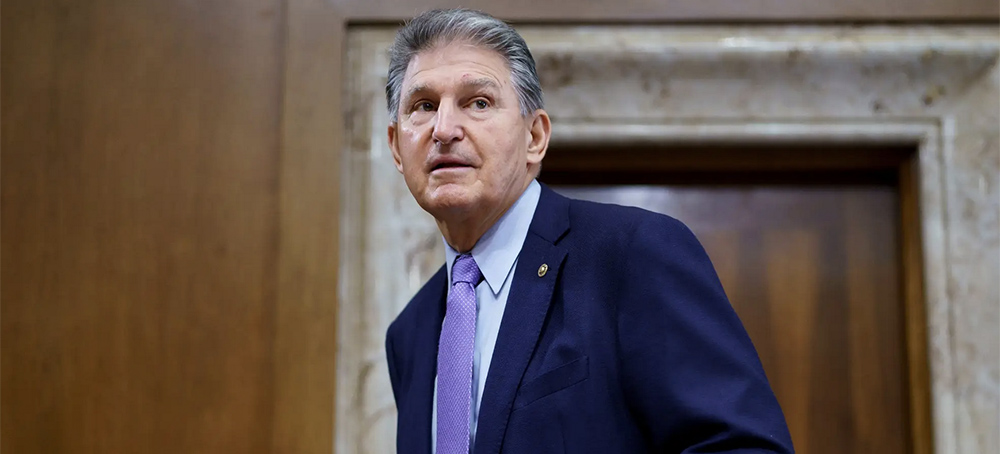 Sen. Joe Manchin of West Virginia. (photo: J. Scott Applewhite/AP)
Sen. Joe Manchin of West Virginia. (photo: J. Scott Applewhite/AP)
"Joe Manchin's opposition to the Build Back Better Act is anti-Black, anti-child, anti-woman, and anti-immigrant," the representative from Missouri said in her statement. "Joe Manchin does not get to dictate the future of our country."
The Build Back Better reconciliation bill focuses on, in part, climate change solutions along with child care and medical care. Democrats are trying to pass the bill in conjunction with a bipartisan infrastructure bill — which focuses on, in part, transportation expansion, and water and power system upgrades.
Sens. Manchin of West Virginia and Kyrsten Sinema of Arizona are the two Democrats holding up the reconciliation bill.
In a Monday news conference, Manchin said "I'm open to supporting a final bill that helps move our country forward. But I'm equally open to voting against a bill that hurts our country."
His major concerns include giving the American people an "entitlement mentality" and inflation.
"I will not support a bill that is this consequential without thoroughly understanding the impact it will have on our national debt, our economy, and the American people," he added.
Manchin also said that he encourages lawmakers to move forward with the infrastructure bill, which has been on hold in the House since August, in the meantime. Democrats would like to pass both bills this week.
"Holding this bill hostage is not going to increase my support for the reconciliation bill," he said.
In her response, Bush said that she doesn't "trust his assessment of what our communities need the most."
She said she'd rather trust her constituents who live the consequences of Congress's decisions such as parents who rely on childcare and people who are pleading for comprehensive health care coverage. She also said she trusts the science that calls for impactful solutions to the climate crisis.
The cost of the bill started at $3.5 trillion over the span of 10 years ($350 billion/year) but has since been reduced to $1.75 trillion over the span of 10 years ($175 billion/year) as Manchin and Sinema use their holdout position to demand compromise. Major components — such as two years of free community college, paid leave, reduced prescription prices — have been chopped from the reconciliation bill.
"When we talk about transformative change, we are talking about a bill that will benefit Black, brown, and Indigenous communities. Those same communities are overwhelmingly excluded from the bipartisan infrastructure bill. We cannot leave anyone behind," said Bush.
Manchin's office did not immediately respond to Insider's request for comment.
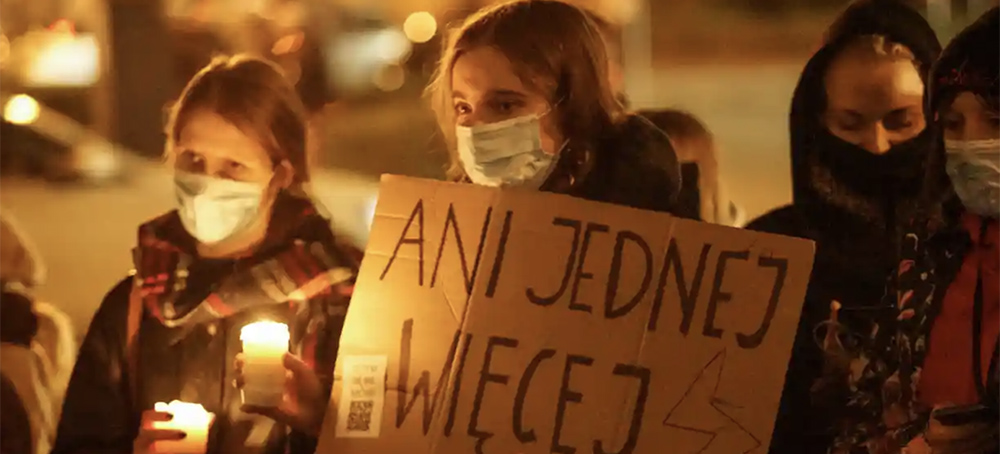 A woman holds a banner saying 'Not one more!' as people protest against changes in the abortion law in front of the ruling Law and Justice party office in Gdansk. (photo: Michal Fludra/NurPhoto/REX/Shutterstock)
A woman holds a banner saying 'Not one more!' as people protest against changes in the abortion law in front of the ruling Law and Justice party office in Gdansk. (photo: Michal Fludra/NurPhoto/REX/Shutterstock)
Demonstrations and candlelit vigil after woman, 30, dies of septic shock in 22nd week of pregnancy
The 30-year-old woman died of septic shock in her 22nd week of pregnancy. Doctors did not perform an abortion, even though her foetus was lacking amniotic fluid, according to a lawyer for the family.
Reproductive rights activists say she is the first person to die as a result of a recent restriction of Poland’s abortion law.
The woman, identified only as Izabela, died in September but her case was made public on Friday, triggering anger among some Poles and protests in Warsaw, Krakow and elsewhere on Monday evening. People lit candles for her in an evening vigil.
Before the new restriction, women in Poland could have abortions only in three cases: if the pregnancy resulted from a crime such as rape, if the woman’s life was at risk, or in the case of severe foetal deformities. The constitutional tribunal, which is influenced by Poland’s conservative ruling party, ruled last year that abortions for congenital defects were not constitutional.
Women’s rights activists say doctors in Poland now wait for a foetus with no chance of survival to die in the womb rather than perform an abortion.
The hospital where the woman died issued a statement on Tuesday saying they were “joined in pain” with her loved ones and others mourning her, and saying its staff had done everything to save her and the foetus. The family’s lawyer said she left behind a husband and a daughter.
“The only factor guiding the medical procedure was concern for the health and life of the patient and the foetus. Doctors and midwives did everything in their power, they fought a difficult battle for the patient and her child,” said the statement from the County hospital in Pszczyna in southern Poland.
The hospital added that prosecutors were investigating the case but said “all medical decisions were made taking into account the legal provisions and standards of conduct in force in Poland”.
An ultra-conservative organisation that lobbied for the abortion restriction, Ordo Iuris, faced accusations of responsibility for the woman’s death. Its president, Jerzy Kwaśniewski, said people should not jump to conclusions about what happened.
Both Kwaśniewski and Radosław Fogiel, a spokesman for Poland’s conservative ruling party, said that under the existing law a woman whose life was at risk had the right to legally terminate her pregnancy.
Fogiel said the ruling Law and Justice party did not plan to make changes to the abortion law due to the case.
 A gray wolf. (photo: Nagel/Shutterstock)
A gray wolf. (photo: Nagel/Shutterstock)
The Trump administration removed the gray wolf from the list of endangered species last year, effectively handing off enforcement to the states. In the first major hunt following the move in February, Wisconsin hunters killed more than 200 wolves, roughly one-fifth of the state’s population.
Indigenous advocates were enraged and confused when Haaland, the first Native American to lead a Cabinet agency, defended the Trump-era rule in federal court instead of enacting emergency protections for an animal that plays a central role in many Indigenous cultures.
In September, the Fish and Wildlife Service (FWS) announced it would review wolves’ endangered species status, but the study will likely take a year while federal protections remain undone.
“No one should be judged on one day or one decision in their life ... but this decision to adopt the Trump position was an extremely disappointing day,” said Tom Rodgers, president of the Global Indigenous Council.
On Friday, tribal leaders made their case in a meeting with Assistant Interior Secretary for Indian Affairs Bryan Newland, a citizen of the Bay Mills Indian Community in Michigan. They’re urging the agency to grant emergency protections to wolves before permanently relisting them, while also taking away federal gaming funds from states that allow for aggressive hunting of wolves.
GOP lawmakers in Montana and Idaho, states that have been exempt from federal wolf protections for a decade, passed bills last year to expand the ability of hunters and ranchers to kill wolves. The Idaho law allows hunters to kill up to 90 percent of the state’s wolves, sparking concern from local reservations that those populations could be wiped out.
Hundreds of tribes across the U.S. and Canada have joined together in the effort to shield wolves, signing a treaty last year stating that wolves are essential to local ecosystems as well as Native American culture and tourism.
Native American activists are also stressing the need for better communication with agency officials, pointing to President Biden’s promise that under his administration, the Interior Department would listen to the Native American communities it governs.
“The No. 1 thing we requested was consultation as directed by the president,” Rodgers said. “Speak to us and elicit our input. Permission is not the same as forgiveness.”
Their campaign is bolstered by Democratic lawmakers. On Thursday, 21 Democratic senators wrote a letter to Haaland urging her to issue temporary federal protections for gray wolves in the U.S. West to prevent “senseless killings.”
“If continued unabated for this hunting season, these extreme wolf eradication policies will result in the death of hundreds of gray wolves and will further harm federally protected ecosystems like Yellowstone,” read the letter, which was led by Sens. Cory Booker (D-N.J.) and Gary Peters (D-Mich.).
An FWS spokesperson said in a statement that “emergency listing remains on the table, if the Service sees circumstances develop that would lead us to apply that authority.” They added the move is left up to the discretion of the agency, which would first need to see sufficient evidence.
Haaland has the authority to unilaterally grant the species emergency listing, but such a move would be unprecedented.
Indigenous advocates are going up against groups representing farmers, ranchers and hunters, which successfully argued to the Trump administration that the nation’s gray wolf population had recovered to sustainable levels. Roughly 6,000 wolves remain in the U.S., according to a FWS estimate.
“It is unacceptable for the Service to continue to be held hostage by groups who want nothing more than to turn the Endangered Species Act into a permanent management tool,” Kaitlynn Glover, executive director of natural resources at the National Cattlemen’s Beef Association, said in a statement following the agency’s announcement that it would review the wolf’s endangered species status.
“It is appropriate for the Service to continue to monitor state management of these recovered populations, but we urge them to dedicate resources to species that are truly imperiled,” she added. “We will continue to defend delisting of these clearly-recovered gray wolf populations.”
Ranchers say that they should be able to defend their livestock from frequent wolf attacks, while hunters argue that state-level management allows for wolf populations to remain stable.
Western GOP lawmakers, who strongly backed the Trump administration’s move to delist wolves, have repeatedly voiced their objections to an emergency relisting. Sen. Jon Tester (D-Mont.), who passed a measure in 2011 that delisted wolves in Montana, Idaho, Utah, Washington and Oregon, also opposes the effort to enact temporary protections.
Haaland, a former Democratic congresswomen from New Mexico, has stressed that she will take input from a wide variety of stakeholders when debating high-profile rulemaking.
“I will follow the science and the law on listing decisions, and work with farmers, ranchers, states and tribes,” Haaland told lawmakers at her Senate confirmation hearing in February.
Native American advocates are expecting more, warning that the failure to protect wolves would prompt backlash from communities that overwhelmingly backed Biden’s 2020 election.
“I would remind this administration how many voting age Native Americans there are in wolf-centric states like Wisconsin and Michigan,” Rodgers said. “Those states are critical to the president not only in 2022 but also in 2024.”
Follow us on facebook and twitter!

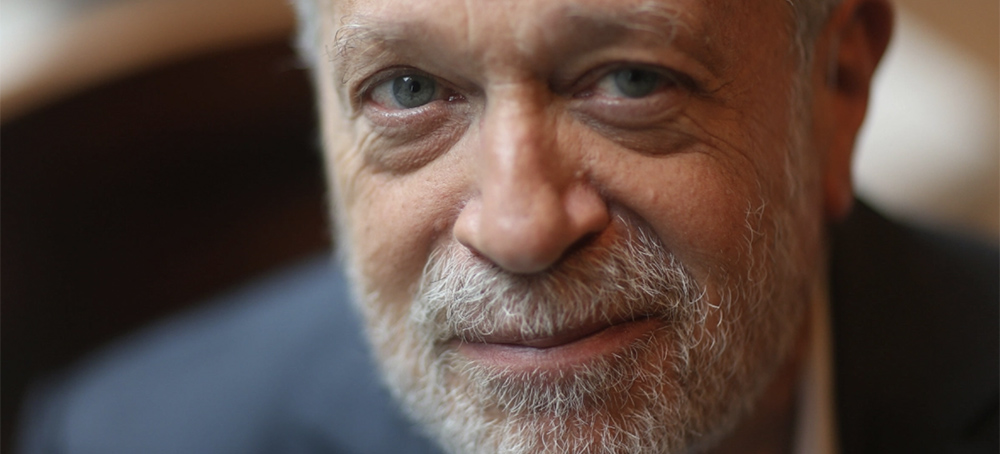

No comments:
Post a Comment